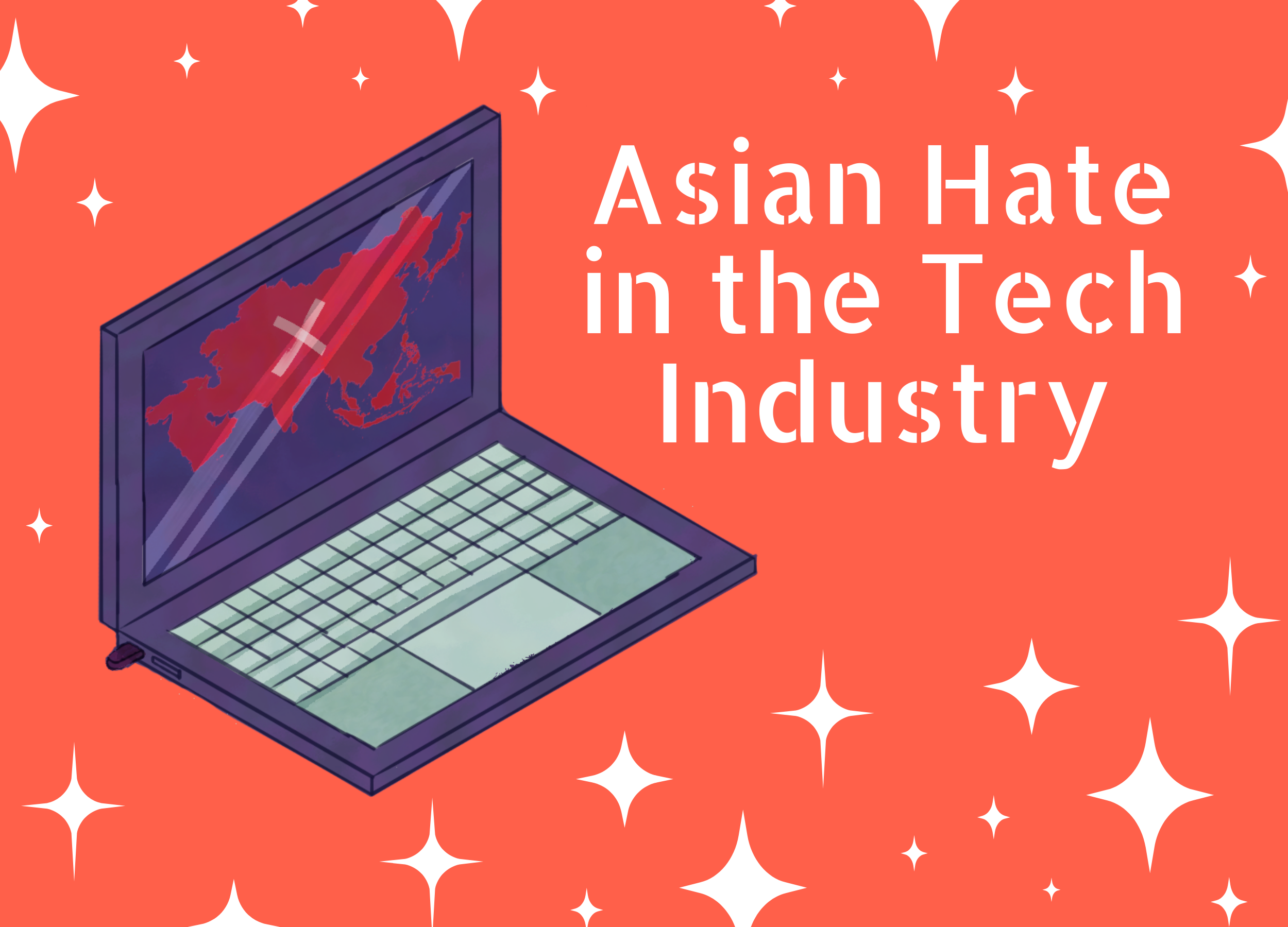Edited by: Harvi Karatha & Taruni Manam, Blogged by: Sahithi Lingampalli
Over the past year, we’ve seen an influx of anti-Asian American and Pacific Islanders (AAPI) hate crimes in almost every aspect of our lives. Unfortunately, the Tech industry is not an exception to this. The model minority myth fuels this hatred against the AAPI community.
The model minority myth states that when a minority group (of a certain religion, race, nationality, etc.) on average succeeds greater than the general public, it can be used as an inspiration for other minority groups. This was first created as an anti-Black movement to foster white supremacy ideals in communities. It allowed white people to say, “Asians are a minority, and they’re succeeding. So, why aren’t you?” Many people, however, fail to recognize the origin of the myth and use it to discriminate against AAPI individuals. They don’t realize how AAPI individuals are affected by this; the stereotypes of them being hardworking, academically strong and overachievers suggest that they don’t face obstacles in the workplace.
Hiring decisions are highly skewed by race. Google, for instance, has recently paid almost $4,000,000 when claims were made that they had discriminated against over 1,200 Asian engineering applicants. A startup called Aptude did not let the Asian application process even go this far, making it one of the requirements that applicants be “non-Asian”.
There are more cases of discrimination amongst Asians. The effects of the Indian caste system can be seen when hiring Indians by interviewers asking questions that address caste and rarely ever hiring those of lower castes.
Within the workplace, discrimination is highly prevalent. Often, colleagues choose to shorten the names of AAPI workers for easier pronunciation without their permission. There is a higher chance of AAPI workers in the Tech industry being sexually harassed as opposed to non-AAPI workers. Microaggressions against AAPI workers are also common.
Getting promoted and holding leadership positions in the workplace is quite rare for AAPI workers. In fact, according to the Harvard Business Review, “Asian Americans are the least likely group in the U.S. to be promoted to management”. This originates from the model minority myth. When we picture an Asian, we often picture a hardworking software engineer. They are not considered leaders or public speakers.
It’s time to put differences aside. The AAPI community may seem like the most successful group of people, but this stereotype is only encouraging hatred against them to go unnoticed. There’s another stereotype on AAPI individuals: they’re too quiet and never speak up. Let’s change that stereotype around first. Let’s speak up about it.
References:
Abell, M. (2021, March 10). End Anti-Asian Racism in Tech. TechEquity Collaborative. Link.
Dickey, M. R. (2021, April 1). Asian Americans in tech say they face ‘a unique flavor of oppression’. Protocol. Link.
Gee, B., & Peck, D. (2018, May 31). Asian Americans Are the Least Likely Group in the U.S. to Be Promoted to Management. Harvard Business Review. Link.
Tiku, N. (2020, October 28). India’s engineers have thrived in the tech industry. So has its caste system. The Seattle Times. Link.

